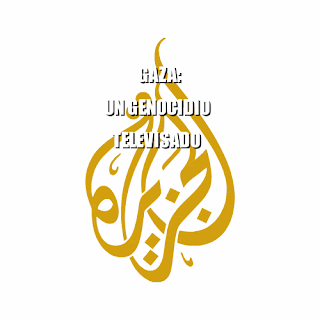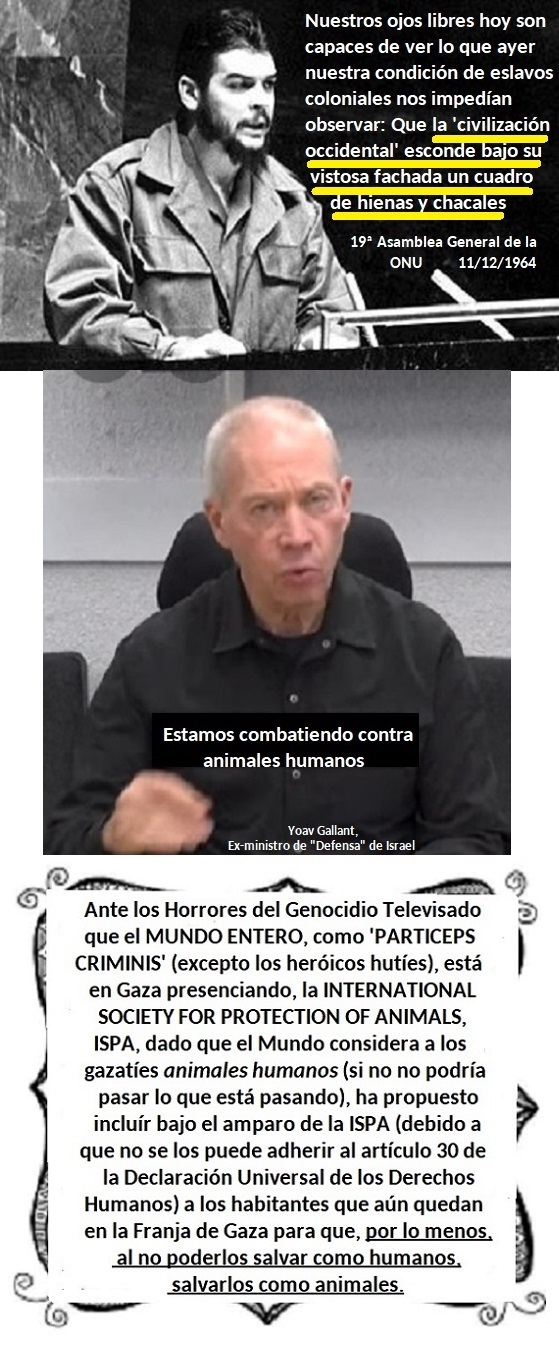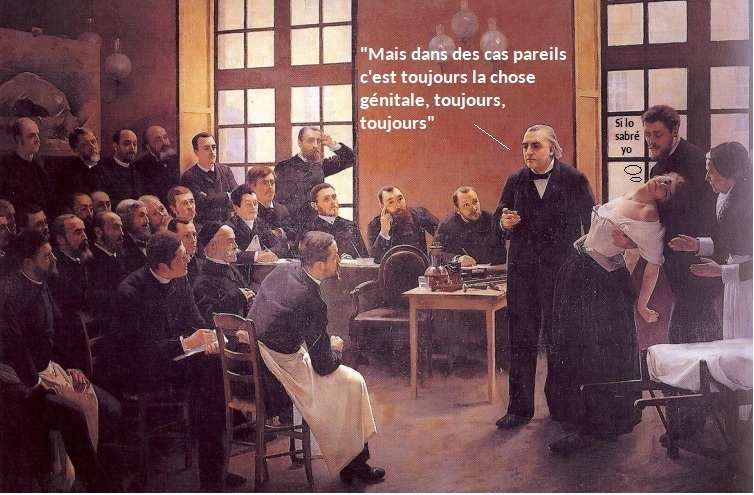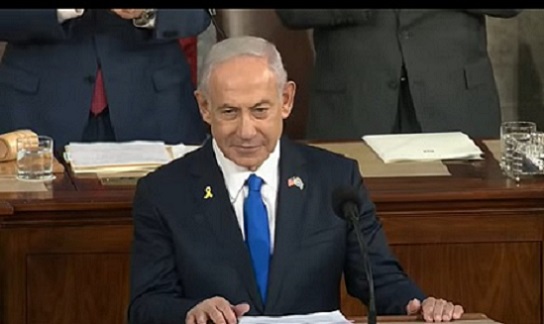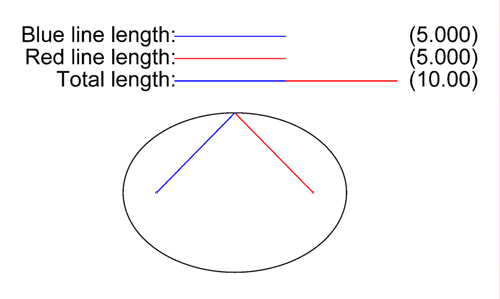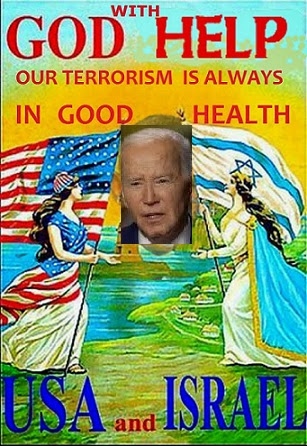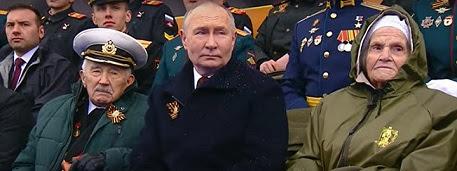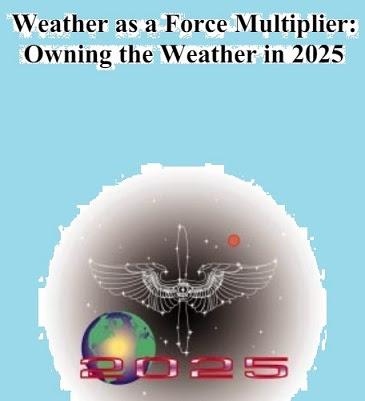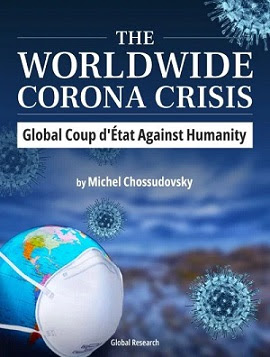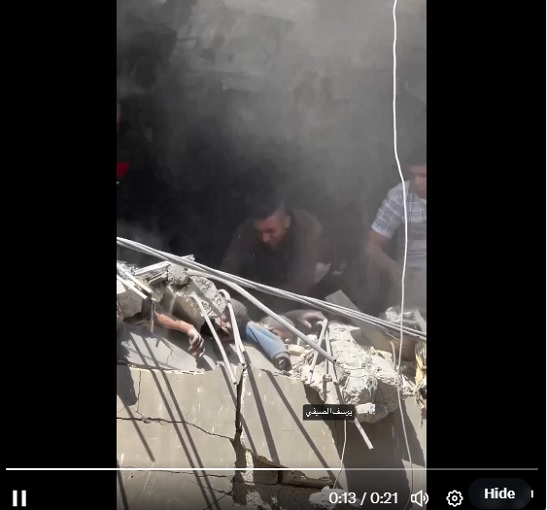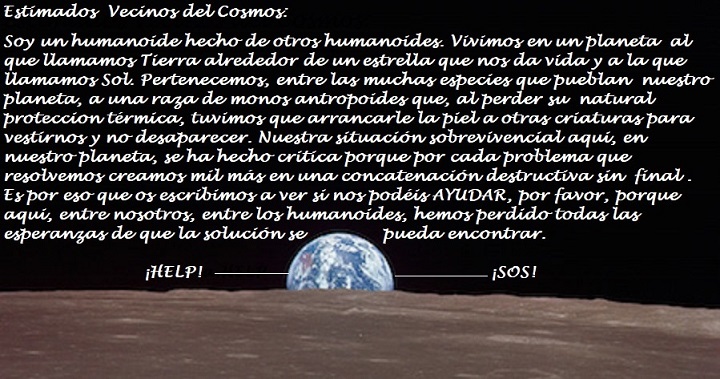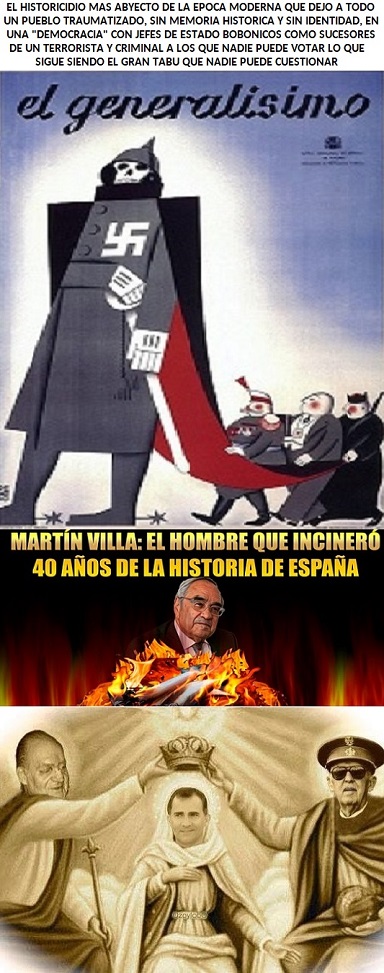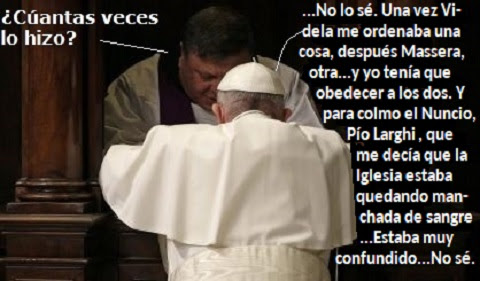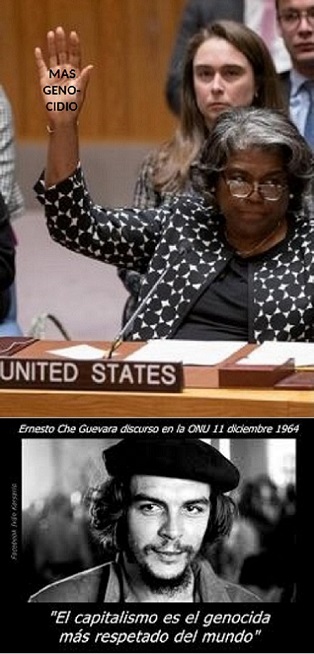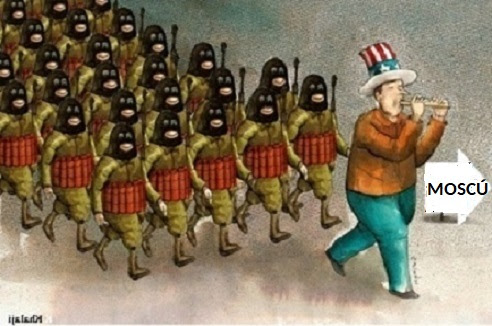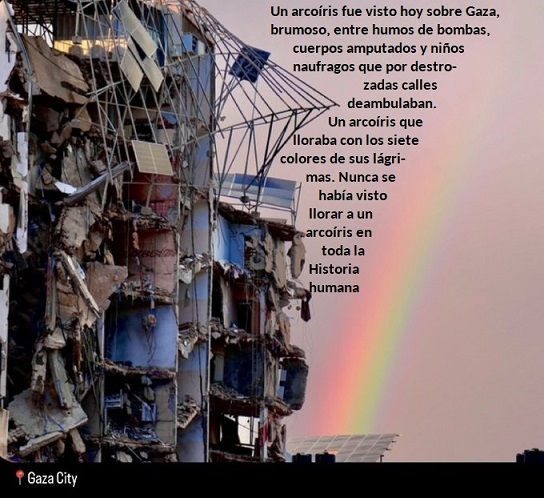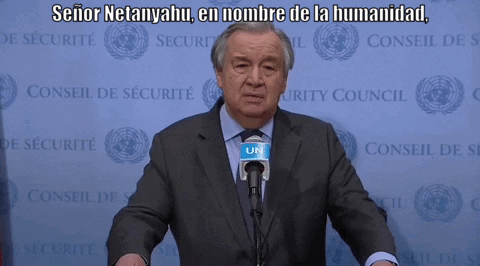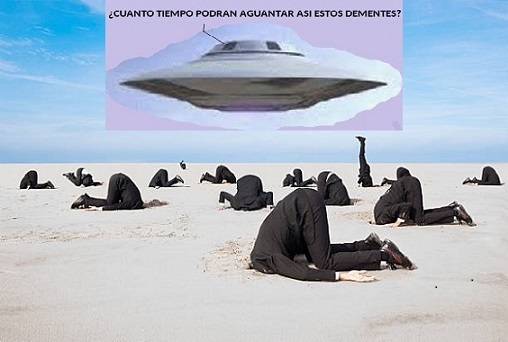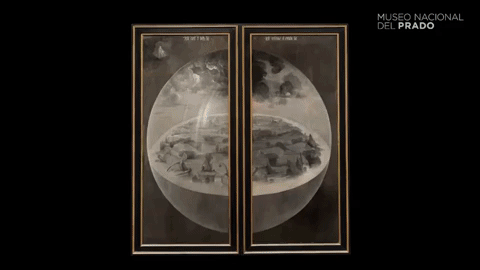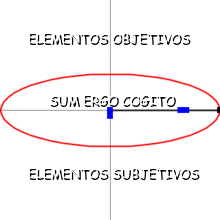Sunday, September 13, 2009
A MI PADRE
Nombre: no se lo pregunte.
Domicilio: en una caba~na, con una huerta, en las afueras de Villalba del Alcor, Huelva, Espan~a.
Edad: no se acuerda.
Vive: "tirando de la cuerda, mire usted...hasta que no pueda", me dijo.
Nombre del burro: Candido.
Despues se saco de una talega, pan, queso, chorizo, y una botella de vino. Y me invito. Y comimos. Y bebimos. Era un dia de Diciembre, por la man~ana, y hacia un poco de frio. Nos sentamos bajo un arbol.
Unos pajaros, a distancia, nos miraban sorprendidos.
Y prosiguio:
"La vida es una cuerda, larga, muy larga, llega desde la tierra al cielo, y del cielo vuelve a bajar a la tierra, y al nacer a todos nos condenan a tirar de ella. Tiramos hacia donde nos lleva, porque la que manda es ella. Tiramos llevandonos a cualqiera por delante. Tiramos hasta que un dia se parte. Y entonces cada cual tira por su lado. Asi hasta el final: el muerto al hoyo y el vivo al bollo. Y como si nunca hubiesemos nacido"
Con una navaja milenaria cortaba con destreza el queso y el chorizo que se lo ponia en el pan, despues se empurraba la botella y parecia resucitar.
"Yo trabajo en estos campos desde que era nin~o, no he conocido otra cosa, y ya soy viejo, sin mujer, sin hijos. La mujer ...se fue, no se donde esta; los hijos...se fueron a sus nidos. A fin de cuentas, todo en esta vida termina yendose, desapareciendo, hasta la cuerda que remolcamos, cuando se rompa un dia, desaparecera. Asi que es normal."
Quedo callado.
Masticaba despacio, como si triturara algo sagrado.
Sus ojos cobraron unas nostalias de ermitan~o abandonado.
"Sabe usted por que tenemos que tirar de la cuerda?"
Hubo un silencio. Yo no queria intervenir. Trago lo que tenia en la boca. Se dio cuenta de que yo no diria nada.
"Porque la vida es un estomago, un estomago que tenemos que llenar. Llenar es tirar. Se da cuenta ahora de lo que quiero decir?". Y el estomago es individual; yo no puedo comer por usted, yo no puedo cagar por usted. Nacemos solos y morimos solos, lo demas son cuentos. Y la cuerda de la que tiramos se llama soledad, la conoce usted?"
Lo mire. No supe que decirle.
"No se preocupe. No tiene por que responder. Todos la conocemos, claro, pero nadie la quiere ver. Yo, siempre en estos campos, dias, noches, an~os, la he tratado mucho, y quiere que le diga una cosa: siempre me fue fiel, nunca se aparto de mi lado ni con nadie me traiciono. Es lo unico en la vida que nunca, ni me ha mentido ni me ha tratado mal, y, ademas, quiere que le diga una cosa?, siempre supo aconsejarme bien sobre lo que debia hacer. Asi que nada le tengo que reprochar, nada, esa es la verdad, y a pesar de que tengo que jalar de ella a todas horas, si quiere que le diga una cosa: ya no podria soportar la vida sin ella."
Candido pastaba cerca. Era un burro grande, blanco, sus ojos miraban como desde un ignoto espacio.
Aquel extran~o hombre hizo una pausa intencional.
Yo comia. No queria intervenir en la conversacion. Ademas, solo estaba alli porque lo queria escuchar.
La comida estaba riquisa. El vino delicioso. Y el campo, de postre, ofrecia su espiritu de oro.
"Si, la soledad es la unica que siempre nos es fiel. Y sabe usted donde esta? Pues en el extremo de la cuerda de donde tenemos que tirar. Siempre esta alli. Por mas vuelta que demos, por mas tretas que montemos, por mucho que nos engan~emos...es inutil...siempre esta alli, siempre tenemos que apechugar con ella".
Habia en el campo un silencio crepuscular. El cielo y la tierra se conjuntaban sin orillas como un mar testigo de lo que bajo aquel arbol podia pasar. Candido enpezo a rebuznar.
"Eso es lo que me gusta de los animales: que de la cuerda nunca tienen que tirar. Candido, burro viejo ya, aunque usted no lo crea, ha sido y es mi maestro. Yo he aprendido mucho de el, aunque le parezca una tonteria. Los animales tienen la cabeza que necesitan, ni mas ni menos, ni menos ni mas; tienen lo justo, lo necesario, por eso, este, no conoce la soledad, porque solo sabe rebuznar: por eso podemos aprender de ellos...aunque quiere que le diga una cosa...?"
Bajo su voz y se acerco lo que pudo hacia a mi oido
"No aprendemos de ellos porque somos mas burros que ellos"
Y solto una risa que espanto a los pajaros que nos miraban sorprendidos. Recogio sus cosas, se monto en su burro, y una vez arriba de el, levanto una mano sen~alandome hacia algun lugar, y como si quisiera iluminarme un camino por el que yo tendria que pasar, alzo su voz:
"Alli, alli tiene usted su casa!
Si algun dia quiere ir a visitarme le ensen~are como hay que tirar de la cuerda de la que le hable!".
Y se alejo como habia llegado.
Y yo me quede pensando.
EL IV REICH, IV : LOS VOTOS DEL "AMERICAN DREAM" VERSUS LAS ESPERANZAS HUMANAS EN LA O.N.U.
"U.S. IMPERIALISM COULD, IN SUBSTANCE, REALIZE EVERYTHING SOUGHT BY HITLER WITHOUT NEEDING TO BREAK WITH DEMOCRACY FORMALLY"
George Lukacs
EL IV REICH, IV:
LOS VOTOS DEL "AMERICAN DREAM"
VERSUS LAS ESPERANZAS HUMANAS.
EN LA O.N.U.
Date Resolution Num. Yes-No Vote
1978
Dec. 15 33/75 119-2 (US, Israel)
Urges the Security Council, especially its permanent members, to take all necessary measures for insuring UN decisions on the maintenance of international peace and security
Dec. 18 33/110 110-2 (US, Israel)
Living conditions of the Palestinian people
Dec. 18 33/113C 97-3 (US, Israel, Guatemala)
Condemnation of Israeli human rights record in occupied territories
Dec. 19 33/136 119-1 (US)
Calls upon developed countries to increase quantity and quality of development assistance to underdeveloped countries
1979
Jan. 24 33/183M 114-3 (US, France, UK)
To end all military and nuclear collaboration with apartheid South
Africa
Jan. 29 33/196 111-1 (US)
Protectionism of developing countries' exports
Nov. 23 34/46 136-1 (US)
Alternate approaches within the UN system for improving the
enjoyment of human rights and fundamental freedoms
Nov. 23 34/52E 121-3 (US, Israel, Australia)
Return of inhabitants expelled by Israel
Dec. 11 34/83J 120-3 (US, UK, France)
Negotiations on disarmament and cessation of nuclear arms race
Dec. 12 34/931 134-3 (US, UK, France)
Assistance to the oppressed people of South Africa and their liberation movement
Dec. 14 34/100 104-2 (US, Israel)
Against support for intervention in the internal or external affairs of states
Dec. 14 34/133 112-3 (US, Israel, Canada)Assistance to Palestinian people
Dec. 14 34/136 118-2 (US, Israel)
Sovereignty over national resources in occupied Arab territories
Dec. 17 34/158 121-2 (US, Israel)
Prepare and carry out the UN Conference on Women
Dec. 19 34/199 112-1 (US)
Safeguarding rights of developing countries in multinational trade negotiations
1980
Dec. 5 35/57 134-1 (US)
Establishment of a New International Economic Order to promote
the growth of underdeveloped countries and international economic cooperation
Dec. 11 35/119 134-3 (US, UK, France)
Implementation of the Declaration on the Granting of Independence to Colonial Countries and Peoples
Dec. 12 35/145A 111-2 (US, UK)
CESAR TODAS LAS EXPLOSIONES NUCLEARES
Dec. 12 35/154 110-2 (US, Albania)
Declaration of non-use of nuclear weapons against non-nuclear states
Dec. 15 35/174 120-1 (US)
Emphasizing that the development of nations and individuals is a
human right
Dec. 16 35/206J 137-3 (US, UK, France)
Assistance to oppressed people of South Africa and their national liberation movement
1981
Nov. 9 36/18 123-1 (US)
To promote co-operative movements in developing countries (agricultural, savings and credits, housing, consumer protection, social services, etc.)
*****************************************************
Nov. 9 36/19 126-1 (US)
The right of every state to choose its economic and social system in accord with the will of its people, without outside interference in whatever form it takes
******************************************************
Nov. 13 36/27 109-2 (US, Israel)
Condemns Israel for its bombing of an Iraqi nuclear installation
Dec. 1 36/68 133-3 (US, UK, Guatemala)
Condemns activities of foreign economic interests in colonial territories
Dec. 9 36/84 118-2 (US, UK)
Cessation of all test explosions of nuclear weapons
Dec. 9 36/87B 107-2 (US, Israel)
Establishment of a nuclear-weapon free zone in the Middle East
Dec. 9 36/92J 78-3 (US, Canada, Brazil)
World-wide action for collecting signatures in support of measures to prevent nuclear war, curb the arms race and promote disarmament
************************************************
Dec. 9 36/96B 109-1(US)
Urges negotiations on prohibition of chemical and biological weapons
************************************************
Dec. 9 36/98 101-2 (US, Israel)
Demands Israelis renounce possession of nuclear weapons
***********************************************
Dec. 14 36/133 135-1 (US)
Declares that education, work, health care, proper nourishment, national development, etc. are human rights
****************************************
Dec. 16 36/149B 147-2 (US, Israel)
Calls for the establishment of a new and more just world information
1982
Oct. 28 37/7 111-1 (US)
World Charter for protection of the Ecology
***************************************
Dec. 9 37/83 138-1 (US)
Prevention of arms race in outer space
***************************************
Dec. 10 37/94B 131-1 (US)
Support of UNESCO's efforts to promote a new world information and communications order
Dec. 13 37/98A 95-1 (US)
Necessity of a convention on the prohibition of chemical and bacteriological weapons
Dec. 16 37/103 113-1 (US) !!!!!!!
Development of the principles and norms of international law relating to the new economic order
!!!!!!!!!!!!!!!!!!!!!!!!!!!!!!!!!!!!!!!!!!!!!!!!!!!!!!!!!!!!!!!!!!!!!!!!!!
Dec. 18 37/199 131-1 (US)
Declares that education, work,health care, proper nourishment, national development, etc., are human rights
!!!!!!!!!!!!!!!!!!!!!!!!!!!!!!!!!!!!!!!!!!!!!!!!!!!!!!!!!!!!!!!!!!!!!!!!!!!
Food is not a human right
As noted above, in 1982 and 1983, the US was alone in voting against a declaration that education, work, health care, proper nourishment and national development are human rights.
It would appear that even 13 years later, official American attitudes had not "softened".
In 1996, at a United Nations-sponsored World Food Summit, the US took issue with an affirmation by the summit of the "right of everyone to have access to safe and nutritious food". The United States insisted that it does not recognize a "right to food". Washington instead championed free trade as the key to ending the poverty at the root of hunger, and expressed fears that recognition of a "right to food" could lead to lawsuits from poor nations seeking aid and special trade provisions.
Para cerrar estas lineas nos viene a la memoria el discurso de Ernesto Che Guevara, en 1964, en la Asamblea General de las Naciones Unidas. Recordando sus palabras sera la mejor manera de llegar a este final:
"Los Estados Unidos se han convertido en el enemigo de la humanidad".
Segun sus votos en las Naciones Unidas es la verdad
EL IV REICH, III: ASESINATOS DEL "AMERICAN DREAM"
"U.S. IMPERIALISM COULD, IN SUBSTANCE, REALIZE EVERYTHING SOUGHT BY HITLER WITHOUT NEEDING TO BREAK WITH DEMOCRACY FORMALLY"
George Lukacs
EL IV REICH, III:
ASESINATOS DEL "AMERICAN DREAM"
U.S. Government Assassination Plots
On June 26, 1993, the United States carried out a bombing attack on Iraq in retaliation for an alleged Iraqi plot to assassinate former president George Bush. The attack, said President Clinton, "was essential to send a message to those who engage in state-sponsored terrorism ... and to affirm the expectation of civilized behavior among nations."
Following is a list of prominent foreign individuals whose assassination (or planning for same) the United States has been involved in since the end of the Second World War. The list does not include several assassinations in various parts of the world carried out by anti-Castro Cubans employed by the CIA and headquartered in the United States.
1949 -
Kim Koo, Korean opposition leader
1950s -
CIA/Neo-Nazi hit list of more than 200 political figures in West
Germany to be "put out of the way" in the event of a Soviet invasion 1950s - Zhou Enlai, Prime minister of China, several attempts on his life 1950s, 1962 - Sukarno, President of Indonesia 1951 -
Kim II Sung, Premier of North Korea
1953 -
Mohammed Mossadegh, Prime Minister of Iran
1950s (mid)
Claro M. Recto, Philippines opposition leader
1955 -
Jawaharlal Nehru, Prime Minister of India
1957 -
Gamal Abdul Nasser, President of Egypt
1959/63/69 -
Norodom Sihanouk, leader of Cambodia
1960 -
Brig. Gen. Abdul Karim Kassem, leader of Iraq
1950s-70s -
Jose Figueres, President of Costa Rica, two attempts on his life
1961 -
Francois "Papa Doc" Duvalier, leader of Haiti
1961 -
Patrice Lumumba, Prime Minister of the Congo
1961 -
Gen. Rafael Trujillo, leader of Dominican Republic
1963 -
Ngo Dinh Diem, President of South Vietnam
1960s-90s -
Fidel Castro, President of Cuba, many attempts and plots on his life
1960s -
Raul Castro, high official in government of Cuba
1965 -
Francisco Caamafio, Dominican Republic opposition leader
1965-6 -
Charles de Gaulle, President of France
1967 -
Che Guevara, Cuban leader
1970 -
Gen. Rene Schneider, Commander-in-Chief of Army, Chile
1970 -
Salvador Allende, President of Chile
1970s, 1981 -
General Omar Torrijos, leader of Panama
1972 -
General Manuel Noriega, Chief of Panama Intelligence
1975 -
Mobutu Sese Seko, President of Zaire
1976 -
Michael Manley, Prime Minister of Jamaica
1980-1986 -
Moammar Qaddafi, leader of Libya, several plots and attempts upon his life
1982 -
Ayatollah Khomeini, leader of Iran
1983
Gen. Ahmed Dlimi, Moroccan Army commander
1983 -
Miguel D'Escoto, Ministro de Asuntos Exteriores de Nicaragua
1984 -
The nine comandantes of the National Directorate of Nicaragua
1985 -
Sheikh Mohammed Hussein Fadlallah, Lebanese Shiite leader
1991 -
Saddam Hussein, leader of Iraq
1998, 2001-2 -
Osama bin Laden, leading Islamic militant 1999 - Slobodan Milosevic, President of Yugoslavia
2002 -
Gulbuddin Hekmatyar, Afghan Islamic leader, warlord, former US ally
2003 -
Saddam Hussein and family members
EL IV REICH, II: LOS ASALTOS DEL "AMERICAN DREAM" CONTRA LOS SUEN~OS AJENOS
"U.S. IMPERIALISM COULD, IN SUBSTANCE, REALIZE EVERYTHING SOUGHT BY HITLER WITHOUT NEEDING TO BREAK WITH DEMOCRACY FORMALLY"
George Lukacs
EL IV REICH, II:
HISTORIA DE LOS ASALTOS
DEL "MERICAN DREAM"
CONTRA LOS SUEN~OS AJENOS
Instances of Use of United States Armed Forces Abroad, 1798-1945
(Prepared by Foreign Affairs Division, Congressional Research Service, Library of Congress, US Government Printing Office, Washington, DC, 1975, revision of 1969 version.)
1798-1800
Undeclared naval war with France: This contest included land actions, such as that in the Dominican Republic, city of Puerto Plata, where marines captured a French privateer under the guns of the forts.
1801-05
Tripoli: The First Barbary War, including the George Washington and Philadelphia affairs and the Eaton expedition, during which a few marines landed with United States agent William Eaton to raise a force against Tripoli in an effort to free the crew of the Philadelphia. Tripoli declared war but not the United States.
1806
Mexico (Spanish territory): Capt. Z.M. Pike, with a platoon of troops, invaded Spanish territory at the headwaters of the Rio Grande deliberately and on orders from Gen. James Wilkinson. He was made prisoner without resistance at a fort he constructed in present day Colorado, taken to Mexico, later released after seizure of his papers. There was a political purpose, still a mystery.
1806-10
Gulf of Mexico: American gunboats operated from New Orleans against Spanish and French privateers, such as La Fitte, off the Mississippi Delta, chiefly under Capt. John Shaw and Master Commandant David Porter.
1810
West Florida (Spanish territory): Gov. Claiborne of Louisiana, on orders of the President, occupied with troops territory in dispute east of Mississippi as far as the Pearl River, later the eastern boundary of Louisiana. He was authorized to seize as far east as the Perdido River. No armed clash.
1812
Amelia Island and other parts of east Florida, then under Spain: Temporary possession was authorized by President Madison and by Congress, to prevent occupation by any other power; but possession was obtained by Gen. George Matthews in so irregular a manner that his measures were disavowed by the President.
1812-15
Great Britain: War of 1812. Formally declared.
1813
West Florida (Spanish territory): On authority given by Congress, General Wilkinson seized Mobile Bay in April with 600 soldiers. A small Spanish garrison gave way. Thus U.S. advanced into disputed territory to the Perdido River, as projected in 1810. No fighting.
1813-14
Marquesas Islands: Built a fort on island of Nukahiva to protect three prize ships which had been captured from the British.
1814
Spanish Florida: Gen. Andrew Jackson took Pensacola and drove out the British with whom the United States was at war.
1814-25
Caribbean: Engagements between pirates and American ships or squadrons took place repeatedly especially ashore and offshore about Cuba, Puerto Rico, Santo Domingo, and Yucatan. Three thousand pirate attacks on merchantmen were reported between 1815 and 1823
In 1822 Commodore James Biddle employed a squadron of two frigates, four sloops of war, two brigs, four schooners, and two gunboats in the West Indies.
1815
Algiers: The second Barbary War, declared by the opponents but not by the United States. Congress authorized an expedition. A large fleet under Decatur attacked Algiers and obtained indemnities.
1815
Tripoli: After securing an agreement from Algiers, Decatur demonstrated with his squadron at Tunis and Tripoli, where he secured indemnities for offenses during the War of 1812.
1816
Spanish Florida: United States forces destroyed Nicholls Fort, called also Negro Fort, which harbored raiders into United States territory.
1816-18
Spanish Florida - First Seminole War: The Seminole Indians, whose area was a resort for escaped slaves and border ruffians, were attacked by troops under Generals Jackson and Gaines and pursued into northern Florida. Spanish posts were attacked and occupied, British citizens executed. There was no declaration or congressional authorization but the Executive was sustained.
1817
Amelia Island (Spanish territory off Florida): Under orders of President Monroe, United States forces landed and expelled a group of smugglers, adventurers, and freebooters.
1818
Oregon: The U.S.S. Ontario, dispatched from Washington, landed at the Columbia River and in August took possession. Britain had conceded sovereignty but Russia and Spain asserted claims to the area.
1820-23
Africa: Naval units raided the slave traffic pursuant to the 1819 act of Congress.
- Cuba: United States naval forces suppressing piracy landed on the north-west coast of Cuba and burned a pirate station.
- Cuba: Brief landings in pursuit of pirates occurred April 8 near Escondido; April 16 near Cayo Blanco; July 11 at Siquapa Bay; July 21 at Cape Cruz; and October 23 at Camrioca.
- Cuba: In October the U.S.S. Porpoise landed bluejackets near Matanzas in pursuit of pirates. This was during the cruise authorized in 1822.
1824
Puerto Rico (Spanish territory): Commodore David Porter with a landing party attacked the town of Fajardo which had sheltered pirates and insulted American naval officers. He landed with 200 men in November and forced an apology.
1825
Cuba: In March cooperating American and British forces landed at Sagua La Grande to capture pirates.
1827
Greece: In October and November landing parties hunted pirates on the islands of Argenteire, Miconi, and Andross.
1831-32
Falkland Islands: To investigate the capture of three American sealing vessels and to protect American interests.
- Sumatra : February 6 to 9: To punish natives of the town of Quallah Battoo for depredations on American shipping.
- Argentina: October 31 to November 15: A force was sent ashore at Buenos Aires to protect the interests of the United States and other countries during an insurrection.
1835-36
Peru: December 10, 1835 to January 24, 1836 and August 31 to December 7, 1836: Marines protected American interests in Callao and Lima during an attempted revolution.
1836
Mexico: General Gaines occupied Nacogdoches (Tex.), disputed territory from July to December during the Texan war for independence, under orders to cross the "imaginary boundary line" if an Indian outbreak threatened.
1838-39
Sumatra - December 24, 1838 to January 4, 1839: To punish natives of the towns of Quallah Battoo and Muckie (Mukki) for depredations on American shipping.
- Fiji Islands - July: To punish natives for attacking American exploring and surveying parties.
- Drummond Island, Kingsmill Group: To avenge the murder of a seaman by the natives.
- Samoa - February 24: To avenge the murder of an American seaman on Upolu Island.
- Mexico: Commodore T.A.C. Jones, in command of a squadron long cruising off California, occupied Monterey, Calif., on October 19, believing war had come. He discovered peace, withdrew, and saluted. A similar incident occurred a week later at San Diego.
1843
China: Sailors and marines from the St. Louis were landed alter a clash between Americans and Chinese at the trading post of Canton.
1843
Africa - November 29 to December 16: Four United States vessels demonstrated and landed various parties (one of 200 marines and sailors) to discourage piracy and the slave trade along the Ivory coast, etc., and to punish attacks by the natives on American seamen and shipping.
1844
Mexico: President Tyler deployed U.S. forces to protect Texas against Mexico, pending Senate approval of a treaty of annexation. (Later rejected.) He defended his action against a Senate resolution of inquiry.
1846-48
Mexico, the Mexican War: President Folk's occupation of disputed territory precipitated it. War formally declared.
1849
Smyrna: In July a naval force gained release of an American seized by Austrian officials.
1851
Turkey: After a massacre of foreigners (including Americans) at Jaffa in January, a demonstration by the Mediterranean Squadron was ordered along the Turkish (Levant) coast. Apparently no shots fired.
1851
Johanna Island (east of Africa), August: To exact redress for the unlawful imprisonment of the captain of an American whaling brig.
1852-53
Argentina - February 3 to 12, 1852; September 17, 1852 to April 1853: Marines were landed and maintained in Buenos Aires to protect American interests during a revolution.
1853
Nicaragua - March 11 to 13: To protect American lives and interests during political disturbances.
1853-54
Japan: The "opening of Japan" and the Perry Expedition.
1853-54
Ryukyu and Bonin Islands: Commodore Perry on three visits before going to Japan and while waiting for a reply from Japan made a naval demonstration, landing marines twice, and secured a coaling concession from the ruler of Naha on Okinawa. He also demonstrated in the Bonin Islands. All to secure facilities for commerce.
1854
China - April 4 to June 15 or 17: To protect American interests in and near Shanghai during Chinese civil strife.
- Nicaragua - July 9 to 15; San Juan del Norte (Greytown) was destroyed to avenge an insult to the American Minister to Nicaragua.
China - May 19 to 21 (?): To protect American interests in Shanghai. August 3 to 5 to fight pirates near Hong Kong.
1855
Fiji Islands - September 12 to November 4: To seek reparations for depredations on Americans.
- Uruguay - November 25 to 29 or 30: United States and European naval forces landed to protect American interests during an attempted revolution in Montevideo.
- Panama, Republic of New Grenada - September 19 to 22: To protect American interests during an insurrection.
1856
China - October 22 to December 6: To protect American interests at Canton during hostilities between the British and the Chinese; and to avenge an unprovoked assault upon an unarmed boat displaying the United States flag.
1857
Nicaragua - April to May, November to December: To oppose William Walker's attempt to get control of the country. In May Commander C.H. Davis of the United States Navy, with some marines, received Walker's surrender and protected his men from the retaliation of native allies who had been fighting Walker. In November and December of the same year United States vessels Saratoga, Wabash, and Fulton opposed another attempt of William Walker on Nicaragua. Commodore Hiram Paulding's act of landing marines and compelling the removal of Walker to the United States, was tacitly disavowed by Secretary of State Lewis Cass, and Paulding was forced into retirement.
1858
Uruguay - January 2 to 27: Forces from two United States warships landed to protect American property during a revolution in Montevideo.
1858
Fiji Islands - October 6 to 16: To chastise the natives for the murder of two American citizens.
1858-59
Turkey: Display of naval force along the Levant at the request of the Secretary of State after massacre of Americans at Jaffa and mistreatment elsewhere "to remind the authorities (of Turkey) ... of the power of the United States."
1859
Paraguay: Congress authorized a naval squadron to seek redress for an attack on a naval vessel in the Parana River during 1855. Apologies were made after a large display of force.
1859
Mexico: Two hundred United States soldiers crossed the Rio Grande in pursuit of the Mexican bandit Cortina.
1859
China - July 31 to August 2: For the protection of American interests in Shanghai.
1860
Angola, Portuguese West Africa - March 1: To protect American lives and property at Kissembo when the natives became troublesome.
1860
Colombia, Bay of Panama - September 27 to October 8: To protect American interests during a revolution.
1863
Japan - July 16: To redress an insult to the American flag - firing on an American vessel - at Shimonoseki.
1864
Japan - July 14 to August 3, approximately: To protect the United States Minister to Japan when he visited Yedo to negotiate concerning some American claims against Japan, and to make his negotiations easier by impressing the Japanese with American power.
- Japan - September 4 to 14 - Straits of Shimonoseki: To compel Japan and the Prince of Nagato in particular to permit the Straits to be used by foreign shipping in accordance with treaties already signed.
- Panama - March 9 and 10: To protect the lives and property of American residents during a revolution.
1866
Mexico: To protect American residents, General Sedgwick and 100 men in November obtained surrender of Matamoras. After 3 days he was ordered by U.S. Government to withdraw. His act was repudiated by the President.
- China - June 20 to July 7: To punish an assault on the American consul at Newchwang; July 14, for consultation with authorities on shore; August 9, at Shanghai, to help extinguish a serious fire in the city.
1867
Nicaragua: Marines occupied Managua and Leon.
-Island of Formosa - June 13: To punish a horde of savages who were supposed to have murdered the crew of a wrecked American vessel.
1868
Japan (Osaka, Hiogo, Nagasaki, Yokohama, and Negata) - Mainly, February 4 to 8, April 4 to May 12, June 12 and 13: To protect American interests during the civil war in Japan over the abolition of the Shogunate and the restoration of the Mikado.
1868
Uruguay - February 7 and 8, 19 to 26: To protect foreign residents and the customhouse during an insurrection at Montevideo.
1868
Colombia - April 7 - at Aspinwall: To protect passengers and treasure in transit during the absence of local police or troops on the occasion of the death of the President of Colombia.
1870
Mexico, June 17 and 18: To destroy the pirate ship Forward, which had been run aground about 40 miles up the Rio Tecapan.
1870
Hawaiian Islands - September 21: To place the American flag at half mast upon the death of Queen Kalama, when the American consul at Honolulu would not assume responsibility for so doing.
1871
Korea - June 10 to 12: To punish natives for depredations on Americans, particularly for murdering the crew of the General Sherman and burning the schooner, and for later firing on other American small boats taking soundings up the Salee River.
1873
Colombia (Bay of Panama) - May 7 to 22, September 23 to October 9: To protect American interests during hostilities over possession of the government of the State of Panama.
- Mexico: United States troops crossed the Mexican border repeatedly in pursuit of cattle and other thieves. There were some reciprocal pursuits by Mexican troops into border territory. The cases were only technically invasions, if that, although Mexico protested constantly. Notable cases were at Remolina in May 1873 and at Las Cuevas in 1875. Washington orders often supported these excursions. Agreements between Mexico and the United States, the first in 1882, finally legitimized such raids. They continued intermittently, with minor disputes, until 1896.
- Hawaiian Islands - February 12 to 20: To preserve order and protect American lives and interests during the coronation of a new king.
1876
Mexico - May 18: To police the town of Matamoras temporarily while it was without other government.
1882
Egypt - July 14 to 18: To protect American interests during warfare between British and Egyptians and looting of the city of Alexandria by Arabs.
1885
Panama (Colon) - January 18 and 19: To guard the valuables in transit over the Panama Railroad, and the safes and vaults of the company during revolutionary activity. In March. April, and May in the cities of Colon and Panama, to re-establish freedom of transit during revolutionary activity.
1888
Korea - June: To protect American residents in Seoul during unsettled political conditions, when an outbreak of the populace was expected.
1888
Haiti - December 20: To persuade the Haitian Government to give up an American steamer which had been seized on the charge of breach of blockade.
1888-89
Samoa - November 14, 1888, to March 20, 1889: To protect American citizens and the consulate during a native civil war.
- Hawaiian Islands - July 30 and 31: To protect American interests at Honolulu during a revolution.
- Argentina: A naval party landed to protect U.S. consulate and legation in Buenos Aires.
- Haiti: To protect American lives and property on Navassa Island.
1891
Bering Sea - July 2 to October 5: To stop seal poaching.
- Chile - August 28 to 30: To protect the American consulate and the women and children who had taken refuge in it during a revolution in Valparaiso.
1893
Hawaii - January 16 to April 1: Ostensibly to protect American lives and property; actually to promote a provisional government under Sanford B. Dole. This action was disavowed by the United States.
1894
Brazil - January: To protect American commerce and shipping at Rio de Janeiro during a Brazilian civil war. No landing was attempted but there was a display of naval force.
1894
Nicaragua - July 6 to August 7: To protect American interests at Bluefields following a revolution.
1894-95
China: Marines were stationed at Tientsin and penetrated to Peking for protection purposes dur- j ing the Sino-Japanese War.
- China: Naval vessel beached and used as a fort at Newchwang for protection of American nationals.
1894-96
Korea - July 24, 1894 to April 3, 1896: To protect American lives and interests at Seoul during and following the S_ino-Japanese War. A guard of marines was kept at the American legation most of the time until April 1896.
1895
Colombia - March 8 to 9: To protect American interests during an attack on the town of Bocas del Toro by a bandit chieftain.
1896
Nicaragua - May 2 to 4: To protect American interests in Corinto during political unrest.
1898
Nicaragua - February 7 and 8: To protect American lives and property at San Juan del Sur.
1898
Spain: The Spanish-American War. Fully declared.
1898-99
China - November 5, 1898, to March 15, 1899: To provide a guard for the legation at Peking and the consulate at Tientsin during contest between the Dowager Empress and her son.
1899
Nicaragua: To protect American interests at San Juan del Norte, February 22 to March 5, and at Bluefields a few weeks later in connection with the insurrection of Gen. Juan P. Reyes.
- Samoa - March 13 to May 15: To protect American interests and to take part in a bloody contention over the succession to the throne.
1899-1901
Philippine Islands: To protect American interests following the war with Spain, and to conquer the islands by defeating the Filipinos in their war for independence.
1900
China - May 24 to September 28: To protect foreign lives during the Boxer rising, particularly at Peking. For many years after this experience a permanent legation guard was maintained in Peking,
and was strengthened at times as trouble threatened. It was still there in 1934.
- Colombia (State of Panama) - November 20 to December 4: To protect American property on the Isthmus and to keep transit lines open during serious revolutionary disturbances.
- Colombia - April 16 to 23: To protect American lives and property at Bocas del Toro during a civil war.
- Colombia (State of Panama) - September 17 to November 18: To place armed guards on all trains crossing the Isthmus and to keep the railroad line open.
- Honduras - March 23 to 30 or 31: To protect the American consulate and the steamship wharf at Puerto Cortez during a period of revolutionary activity.
1903
Dominican Republic - March 30 to April 21: To protect American interests in the city of Santo Domingo during a revolutionary outbreak.
-Syria - September 7 to 12: To protect the American consulate in Beirut when a local Moslem uprising was feared.
1903-04
Abyssinia: Twenty-five marines were sent to Abyssinia to protect the U.S. Consul General while he negotiated a treaty.
1903-14
Panama: To protect American interests and lives during and following the revolution for independence from Colombia over the construction of the Isthmian Canal. With brief intermissions, Marines were stationed on the Isthmus from November 4, 1903 to January 21,1914, to guard American interests.
1904
Dominican Republic - January 2 to February 11: To protect American interests in Puerto Plata and Sosua and Santo Domingo City during revolutionary fighting.
- Tangier, Morocco: "We want either Perdicaris alive or Raisula dead." Demonstration by a squadron to force release of a kidnapped American Marine guard landed to protect consul general.
- Panama - November 17 to 24: To protect American lives and property at Ancon at the time of a threatened insurrection.
1904-05
Korea - January 5, 1904 to November 11, 1905: To guard the American Legation in Seoul. 1904-05 - Korea: Marine guard sent to Seoul for protection during Russo-Japanese War.
1906-09
Cuba - September 1906 to January 23, 1909: Intervention to restore order, protect foreigners, and establish a stable government after serious revolutionary activity.
1907
Honduras - March 18 to June 8: To protect American interests during a war between Honduras and Nicaragua; troops were stationed for a few days or weeks in Trujillo, Ceiba, Puerto Cortez, San Pedro, Laguna and Choloma.
1910
Nicaragua - February 22: During a civil war, to get information of conditions at Corinto; May 19 to September 4, to protect American interests at Bluefields.
1911
Honduras - January 26 and some weeks thereafter: To protect American lives and interests during a civil war in Honduras.
- China: Approaching stages of the nationalist revolution. An ensign and 10 men in October tried to enter Wuchang to rescue missionaries but retired on being warned away. A small landing force guarded American private property and consulate at Hankow in October. A marine guard was established in November over the cable stations at Shanghai. Landing forces were sent for protection in Nanking, Chinkiang, Taku and elsewhere.
1912
Honduras: Small force landed to prevent seizure by the Government of an American-owned railroad at Puerto Cortez. Forces withdrawn after the United States disapproved of the action.
- Panama: Troops, on request of both political parties, supervised elections outside the Canal Zone. 1912 - Cuba - June 5 to August 5: To protect American interests on the Province of Oriente, and in Habana.
- China - August 24 to 26, on Kentucky Island, and August 26 to 30 at Camp Nicholson: To protect Americans and American interests during revolution activity.
- Turkey - November 18 to December 3: To guard the American legation at Constantinople during a Balkan War.
1912-25
Nicaragua - August to November 1912: To protect American interests during an attempted revolution. A small force serving as a legation guard and as a promoter of peace and governmental stability, remained until August 5, 1925.
1912-21
China: The disorders which began with the Kuomintang rebellion in 1912, which were redirected by the invasion of China by Japan and finally ended by war between Japan and the United States in 1941, led to demonstrations and landing parties for the protection of U.S. interests in China continuously and at many points from 1912 to 1941. The guard at Peking and along the route to the sea was maintained until 1941. In 1927, the United States had 5,670 troops ashore in China and 44 naval vessels in its waters. In 1933 U.S. had 3,027 armed men ashore. All this protective action was in general terms based on treaties with China ranging from 1858 to 1901.
1913
Mexico - September 5 to 7: A few marines landed at Ciaris Estero to aid in evacuating American citizens and others from the Yaqui Valley, made dangerous for foreigners by civil strife.
1914
Haiti - January 29 to February 9, February 20 to 21, October 19: To protect American nationals in a time of dangerous unrest.
- Dominican Republic - June and July: During a revolutionary movement, United States naval forces by gunfire stopped the bombardment of Puerto Plata, and by threat of force maintained Santo Domingo City as a neutral zone.
1914-17
Mexico: The undeclared Mexican-American hostilities following the Dolphin affair and Villa's raids included capture of Vera Cruz and later Pershing's expedition into northern Mexico.
1915-34
Haiti - July 28, 1915 to August 15, 1934: To maintain order during a period of chronic and threatened insurrection.
1916
China: American forces landed to quell a riot taking place on American property in Nanking.
1916-24
Dominican Republic - May 1916 to September 1924: To maintain order during a period of chronic and threatened insurrection.
1917
China: American troops were landed at Chungking to protect American lives during a political crisis.
1917-18
World War I. Fully declared.
1917-22
Cuba: To protect American interests during an insurrection and subsequent unsettled conditions. Most of the United States armed forces left Cuba by August 1919, but two companies remained at Camaguey until February 1922.
1918-19
Mexico: After withdrawal of the Pershing expedition, our troops entered Mexico in pursuit of bandits at least three times in 1918 and six in 1919. In August 1918 American and Mexican troops fought at Nogales.
1918-20
Panama: For police duty according to treaty stipulations, at Chiriqui, during election disturbances and subsequent unrest.
1918-20
Soviet Russia: Marines were landed at and near Vladivostok in June and July to protect the American consulate and other points in the fighting between the Bolsheviki troops and the Czech Army which had traversed Siberia from the western front. A joint proclamation of emergency government and neutrality was issued by the American, Japanese, British, French, and Czech commanders in July and our party remained until late August. In August the project expanded. Then 7,000 men were landed in Vladivostok and remained until January 1920, as part of an allied occupation force.
In September 1918, 5,000 American troops joined the allied intervention force at Archangel, suffered 500 casualties and remained until June 1919. A handful of marines took part earlier in a British landing on the Murman coast (near Norway) but only incidentally. All these operations were to offset effects of the Bolsheviki revolution in Russia and were partly supported by Czarist or Kerensky elements. No war was declared. Bolsheviki elements participated at times with us but Soviet Russia still claims damages.
1919
Dalmatia: U.S. Forces were landed at Trau at the request of Italian authorities to police order between the Italians and Serbs.
- Turkey: Marines from the U.S.S. Arizona were landed to guard the U.S. Consulate during the Greek occupation of Constantinople.
- Honduras - September 8 to 12: A landing force was sent ashore to maintain order in a neutral zone during an attempted revolution.
1920
China - March 14: A landing force was sent ashore for a few hours to protect lives during a disturbance at Kiukiang.
- Guatemala - April 9 to 27: To protect the American Legation and other American interests, such as the cable station, during a period of fighting between Unionists and the Government of Guatemala.
1920-22
Russia (Siberia) - February 16, 1920 to November 19, 1922: A marine guard to protect the United States radio station and property on Russian Island, Bay of Vladivostok.
- Panama-Costa Rica: American naval squadrons demonstrated in April on both sides of the Isthmus to prevent war between the two countries over a boundary dispute.
- Turkey - September and October: A landing force was sent ashore with consent of both Greek and Turkish authorities, to protect American lives and property when the Turkish Nationalists entered
Smyrna.
1922-23
China: Between April 1922 and November 1923, Marines were landed five times to protect Americans during periods of unrest.
1924
Honduras - February 28 to March 31, September 10 to 15: To protect American lives and interests during election hostilities.
- China - September: Marines were landed to protect Americans and other foreigners in Shanghai during Chinese factional hostilities.
1925
China - January 15 to August 29: Fighting of Chinese factions accompanied by riots and demonstrations in Shanghai necessitated landing American forces to protect lives and property in the International Settlement.
- Honduras - April 19 to 21: To protect foreigners at La Ceiba during a political upheaval.
- Panama - October 12 to 23: Strikes and rent riots led to the landing of about 600 American troops to keep order and protect American interests.
1926
China - August and September: The Nationalist attack on Hankow necessitated the landing of American naval forces to protect American citizens. A small guard was maintained at the consulate
general even after September 16, when the rest of the forces were withdrawn. Likewise, when Nationalist forces captured Kiukiang, naval forces were landed for the protection of foreigners November 4 to 6.
1926-33
Nicaragua - May 7 to June 5, 1926; August 27, 1926 to January 3, 1933: The coup d'etat of General Chamorro aroused revolutionary activities leading to the landing of American marines to protect the interests of the United States. United States forces came and went, but seem not to have left the country entirely until January 3, 1933. Their work included activity against the outlaw leader Sandino in 1928.
1927
China - February: Fighting at Shanghai caused American naval forces and marines to be increased there. In March a naval guard was stationed at the American consulate at Nanking after Nationalist forces captured the city. American and British destroyers later used shell fire to protect Americans and other foreigners. "Following this incident additional forces of marines and naval vessels were ordered to China and stationed in the vicinity of Shanghai and Tientsin."
1932
China: American forces were landed to protect American interests during the Japanese occupation of Shanghai.
1933
Cuba: During a revolution against President Gerardo Machado naval forces demonstrated but no landing was made.
1934
China: Marines landed at Foochow to protect the American Consulate.
1940
Newfoundland, Bermuda, St. Lucia, Bahamas, Jamaica, Antigua, Trinidad, and British Guiana: Troops were sent to guard air and naval bases obtained by negotiation with Great Britain. These were sometimes called lend-lease bases.
1941
Greenland: Taken under protection of the United States in April.
- Netherlands (Dutch Guiana): In November the President ordered American troops to occupy Dutch Guiana but by agreement with the Netherlands government in exile, Brazil cooperated to protect aluminum ore supply from the bauxite mines in Suriname.
- Iceland: Taken under the protection of the United States, with consent of its Government, for strategic reasons.
- Germany: Sometime in the spring the President ordered the Navy to patrol ship lanes to Europe. By July U.S. warships were convoying and by September were attacking German submarines. There was no authorization of Congress or declaration of war. In November, the Neutrality Act was partly repealed to protect military aid to Britain, Russia, etc.
1941-45
Germany, Italy, Japan, etc: World War II. Fully declared.
******************************
Asi llegamos a la Segunda Guerra Mundial que los barones del Imperio la terminaron de la consabida manera de lanzar sus dos famosos bombazos nucleares sobre poblaciones urbanas indefensas.
Una excelente manera etica y moral de proclamarse vencedores.
Despues de este cataclismo vendrian muchisimas mas intervenciones, cambiando gobiernos, destrozando las ilusiones de los pueblos. Las naciones Iberoamericanas: El Salvador, Guatemala, Nicaragua, Brasil, Chile...y afuera de este continente, Corea, Vietnam, Laos, Camboya, Indonesia, el Congo...y un largo etc. que nos lleva a preguntarnos:
Donde no han "intervenido"?
Donde no han matado Las Esperanzas Humanas?
Subscribe to:
Comments (Atom)
Blog Archive
- ► 2010 (272)
- ► 2011 (343)
- ► 2012 (355)
- ► 2013 (352)
- ► 2014 (502)
- ► 2015 (416)
- ► 2016 (334)
- ► 2017 (330)
- ► 2018 (296)
- ► 2019 (297)
- ► 2020 (358)
- ► 2021 (358)
- ► 2022 (406)
- ► 2023 (309)
- ► 2024 (250)
- ► 2025 (281)































































































































